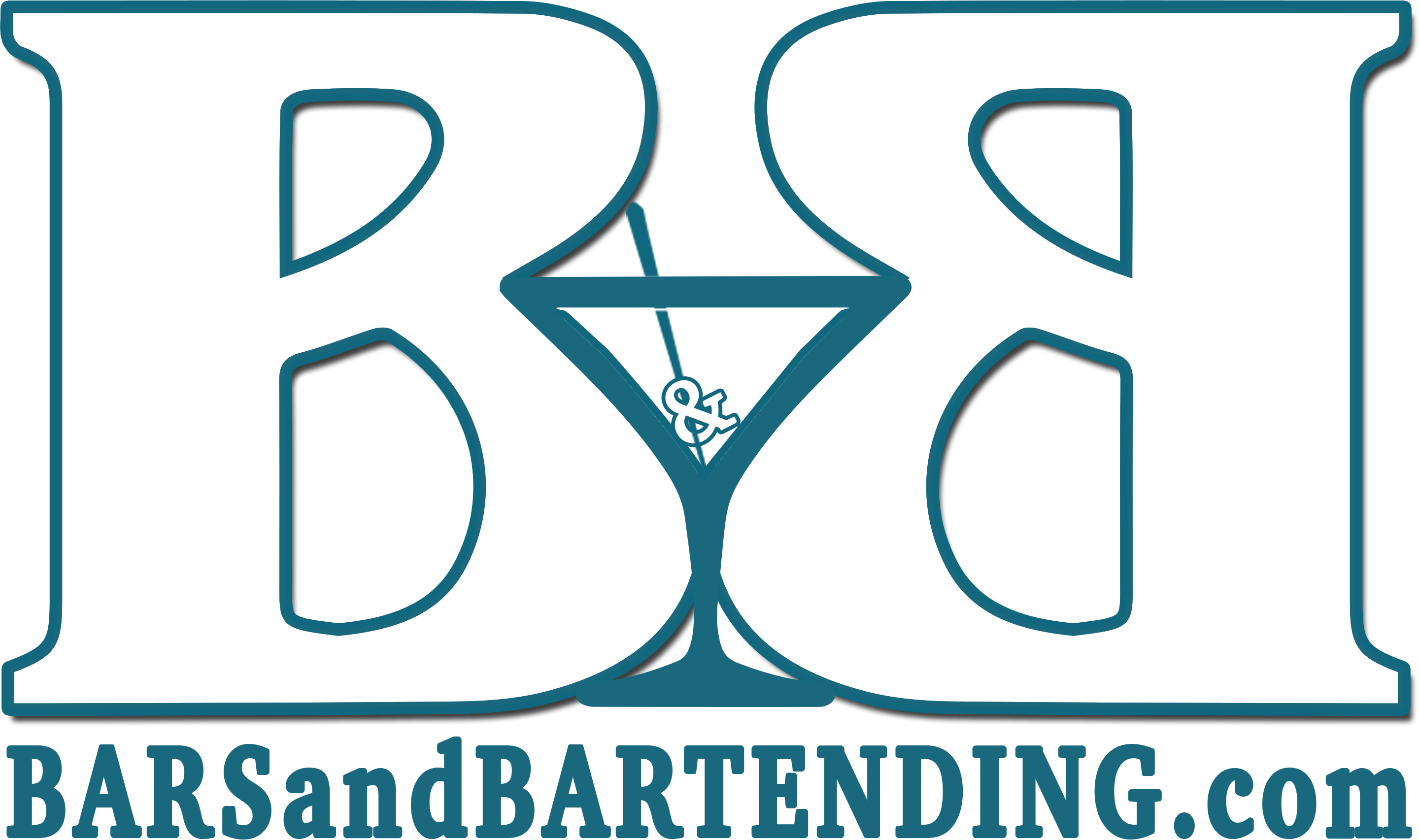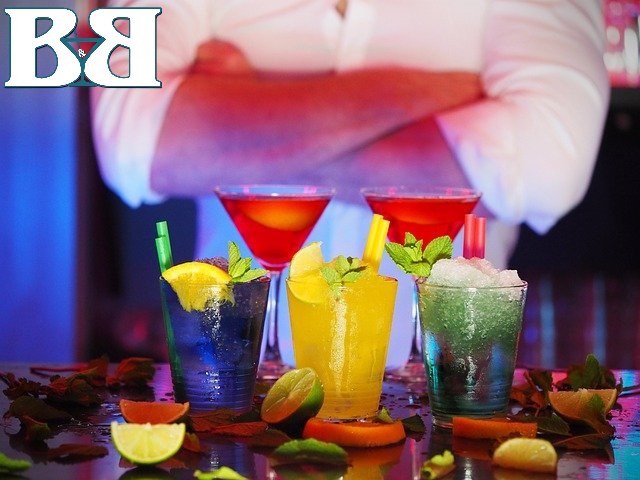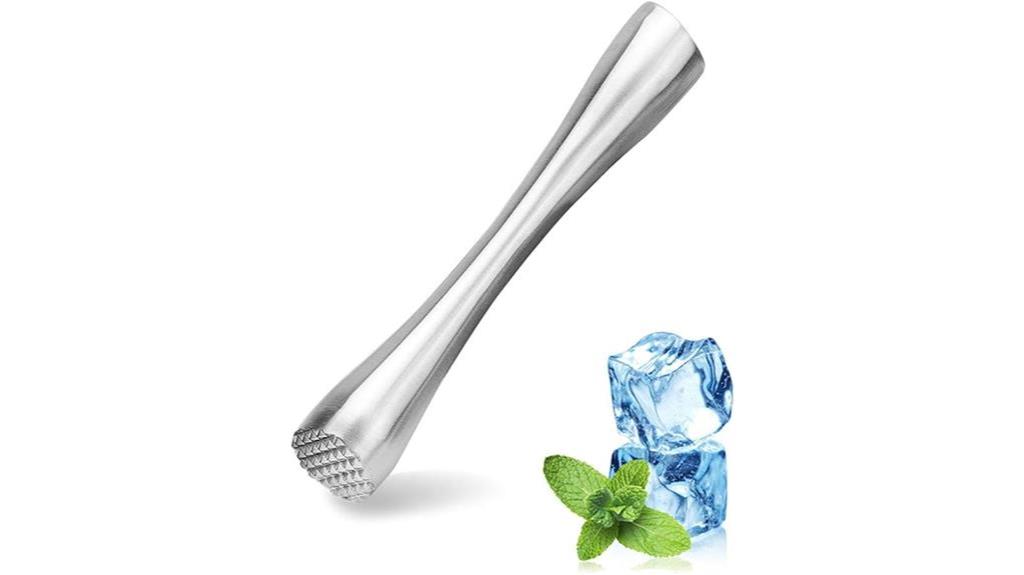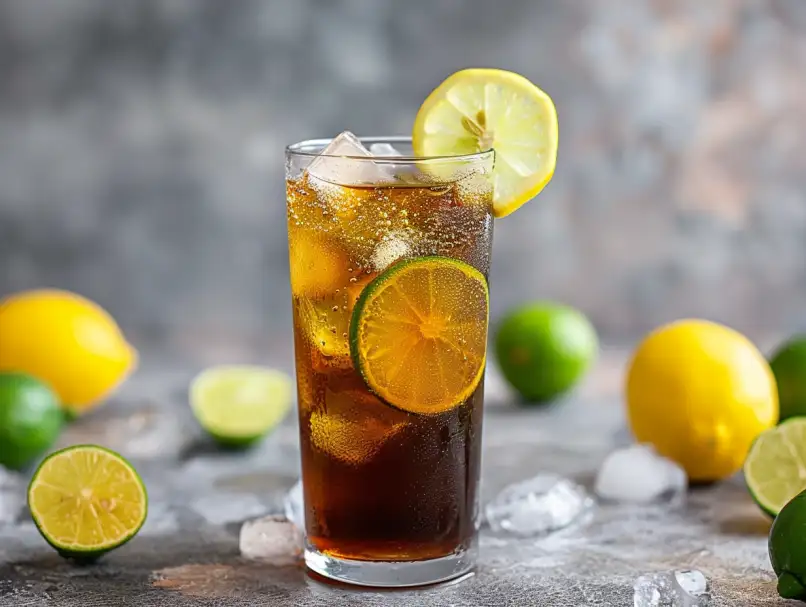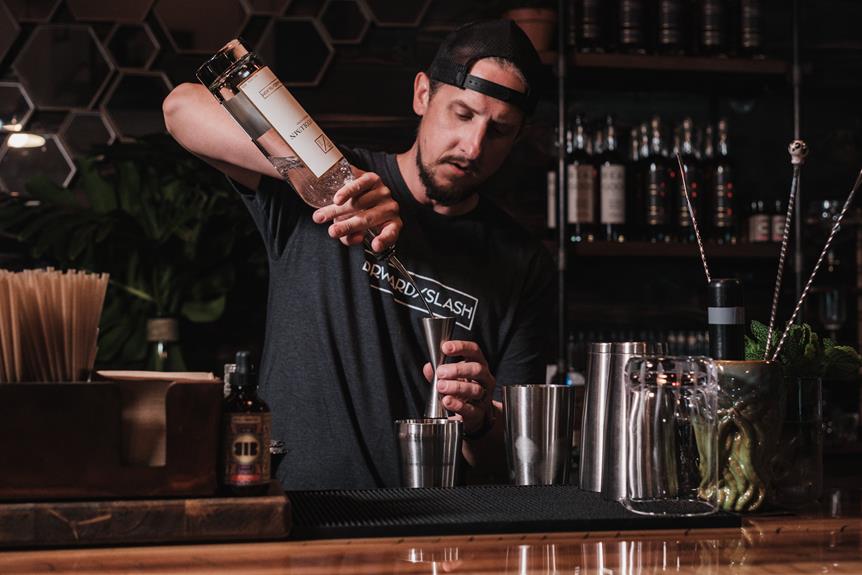Do You Have to Be a Salesperson to be a Good Bartender?
Are bartenders salesmen? It’s a question that has been asked for many years, but rarely answered. After all, the act of selling something—alcohol in this case—is at the core of a bartender’s role. However, there is more to being a successful bartender than simply selling drinks.
It takes more than just knowledge of beer and cocktails to be an excellent bartender. The ability to interact with customers and understand their needs is essential for delivering great customer service. In order to increase bar profits, bartenders must have excellent salesmanship skills in addition to in-depth product knowledge.
This article will answer the age-old question: Is a bartender a salesman? The answer is yes! Bartenders should use their salesmanship skills to increase their bar’s profits and deliver an unforgettable experience for customers. Read on to find out how you can be an effective and successful salesman behind the bar!
Understanding The Role Of A Bartender
To understand the role of a bartender, it’s important to recognize the various duties they have. Bartenders are responsible for creating drinks, managing inventory, and providing excellent customer service. They must be knowledgeable about a variety of alcoholic beverages and be able to make recommendations to customers.
In addition to their knowledge of alcohol, bartenders must also be familiar with food menus so they can suggest menu items that pair well with certain drinks. They should also possess an understanding of state and local liquor laws so they can serve customers appropriately. Moreover, bartenders must be able to multitask and handle large crowds during peak hours.
Bartenders are not only responsible for preparing drinks but also for upselling them. Thus, salesmanship is one of the key components of their job. Through conversation and product promotion, bartenders work hard to increase sales in order to earn higher tips from customers. Whether it’s recommending a specific brand or offering discounts on featured items, bartenders need to use their persuasive skills in order to increase sales and provide excellent customer service at the same time.
Therefore, it is safe to say that bartenders are indeed salespeople too!
Exploring The Dynamics Of A Bartender/Customer Relationship
The role of a bartender goes beyond just serving drinks; it also involves forming relationships with customers. A bartender must be able to read the room and adjust their approach accordingly in order to create an atmosphere that is welcoming, comfortable, and enjoyable for all patrons. This requires a certain level of skill and finesse, as the customer must feel like they are being taken care of without feeling overwhelmed or ignored.
The relationship between a bartender and customer can be complex, especially when it comes to sales. A good bartender will know how to strike a balance between providing information on the bar’s offerings while still respecting the customer’s space and time. This includes understanding when customers may not be interested in learning more about what is available or when they do not have the capacity to purchase more than what they initially ordered.
In order for bartenders to truly connect with their customers, it is important for them to foster an environment where both parties can feel heard and respected. This allows bartenders to better understand their customers’ needs and provide them with an experience that is tailored specifically for them. By doing this, bartenders can ensure that their customers not only have a positive experience at the bar but also come back again in the future.
Analyzing The Sales Techniques Of A Bartender
The relationship between a bartender and customer is an interesting one. On the surface, they may appear to be two strangers who have come together for a single transaction, however, the dynamics of their interaction can often be much more complex.
Bartenders often use subtle sales techniques that encourage customers to order more than they originally intended. They may start off with a friendly introduction and small talk, which helps to establish trust and rapport with the customer. Bartenders also focus on using positive body language and facial expressions to draw customers in. Additionally, they can make suggestions about food or drink combinations that are popular or offer special deals on drinks if customers buy multiple items at once.
These sales techniques are effective because they help create an environment where customers feel comfortable spending money. By building a trusting relationship with their customers, bartenders can increase their sales while providing excellent customer service. This win-win situation is beneficial for both parties involved; the bar makes more money while the customer feels respected and valued during their time there.
Examining The Benefits Of Bartenders As Salespeople
When it comes to sales, bartenders have a unique set of skills and knowledge that can be leveraged to drive success. First, they are natural conversationalists with the ability to engage customers in meaningful dialogue and build relationships quickly. They also understand the importance of providing excellent customer service, which is key to any successful sales venture.
Bartenders have an advantage over traditional salespeople because they are able to observe customers’ behavior and suggest relevant purchases based on their preferences. This allows them to make more targeted recommendations that are better suited for each individual customer’s needs. Additionally, bartenders often possess a great deal of product knowledge, making them well-equipped to answer any questions customers may have about products or services being offered.
Not only do bartenders provide valuable sales advice, but they also create an enjoyable atmosphere for customers that encourages repeat business. With the right approach, bartenders can create a friendly and inviting environment where guests feel welcome and comfortable enough to return time and time again. This is especially true if they have developed a trusting relationship with the customer through their conversations and interactions at the bar.
In sum, bartenders offer many advantages as salespeople – from their natural communication abilities and customer service skills to their specialized product knowledge and ability to create a positive atmosphere – all of which can give businesses an edge over competitors when it comes to making sales.
What Kind Of Training Is Needed To Become A Sales-Oriented Bartender?
Sales-oriented bartenders are individuals who have mastered both the art of mixing drinks and the art of selling them. These professionals often have to be adept at marketing and customer service, as well as having great knowledge of alcohol and beverages. To become a sales-oriented bartender, specialized training is necessary.
This training should cover topics such as understanding customers’ needs, knowing how to promote drinks, providing excellent customer service, and how to upsell and cross-sell products. It’s also important for bartenders to understand the kind of atmosphere they are working in – whether it’s a formal setting or a casual bar – so they can adjust their sales pitch accordingly.
All in all, becoming a successful sales-oriented bartender requires mastering various skill sets that go beyond simply making drinks. Therefore, it is essential for any aspiring bartender to invest time in learning the craft of selling drinks and creating an inviting atmosphere for customers.
Tips For Bartenders To Increase Their Sales
Sales are the lifeblood of any business, and bartenders should be well-versed in skills to boost their sales. From upselling techniques to tactics for increasing customer retention, there are a number of ways bartenders can increase their profits. Let’s take a look at some tips that can help bartenders get more sales.
First, it’s important for bartenders to understand their customers’ needs and preferences. Knowing what drinks they like and what they’re likely to order can help speed up service time, giving the bartender an opportunity to focus on other customers. Furthermore, upselling is an effective strategy that encourages customers to purchase items with higher profit margins. For example, suggesting a premium brand of beer or top-shelf spirits can be helpful in increasing sales.
Finally, creating relationships with regular customers is key to boosting revenue for bartenders. Developing loyalty programs or offering discounts during happy hour can all lead to more sales over time as customers come back more often and spend more money each time they visit the bar. Building relationships also helps create word-of-mouth recommendations which is one of the most powerful forms of marketing for businesses.
Challenges Of Being A Sales-Oriented Bartender
A bartender who is able to maximize their sales potential can be highly successful, but there are certain challenges that come with this role.
One of the main challenges of being a sales-oriented bartender is knowing when to push for additional purchases from customers. On one hand, bartenders need to be able to suggest items and upsell drinks, food, and other services in order to make more money. On the other hand, they don’t want to overwhelm customers or appear overly pushy. Finding the right balance between selling and providing excellent customer service can take time and practice.
Another challenge of being a sales-oriented bartender involves understanding how different types of customers interact with an establishment. Knowing which customers prefer which drinks or what specials they like helps bartenders increase their sales potential while also providing good customer service. Additionally, understanding customer behavior and preferences during peak hours can help bartenders better plan their staff scheduling needs so that they have enough bar staff available when needed most.
Bartending requires skillful balancing between providing excellent customer service and making sure that every sale opportunity is maximized – something that takes time and practice for anyone in the role. With enough knowledge and commitment, however, it’s possible for any bartender to become successful at maximizing their sales potential while still offering great customer service.
The Future Of Bartenders As Salespeople
As bartenders continue to take on more sales-related roles, the future of bartending as a sales job is becoming increasingly clear. Bartenders must now not only be able to craft delicious drinks but also act as salespeople, connecting with customers and persuading them to purchase what they offer. This can come with unique challenges, but there are many opportunities for success.
The first step in capitalizing on this new trend is understanding what makes for a successful sales-oriented bartender. A few key elements include:
1) Being able to read customer body language and understand their needs and desires;
2) Offering personalized recommendations that cater to the customer’s tastes;
3) Creating an inviting atmosphere that encourages customers to buy more.
By mastering these skills, bartenders can turn their service into a successful sales career. Additionally, bartenders should also stay up-to-date on current trends, such as craft cocktails or local specialties, which can help increase their credibility and knowledge of the industry. With the right combination of expertise and enthusiasm, bartenders have the potential to thrive in the world of sales.
Being a successful salesperson requires hard work and dedication, but it can be rewarding too. For those looking to make the most out of their bar experience, exploring this new field could be a great opportunity for both personal growth and professional advancement.
Frequently Asked Questions
What Are The Legal Restrictions On Bartenders Selling Alcohol?
Bartenders, like any other seller of alcohol, must adhere to certain legal restrictions in order to remain compliant with the law. The exact parameters and regulations vary by jurisdiction, but typically, bartenders are required to be of a certain age, possess a license or permit for selling alcohol, and provide only appropriate levels of intoxication for customers. In addition to observing these guidelines, bartenders need to be aware that there may also be local laws or ordinances governing the sale and distribution of alcoholic beverages.
It is important for bartenders to stay up-to-date with their local regulations as they can change over time. For example, in some areas there may be limits on how much alcohol can be served at one time or specific rules about serving minors. Failing to comply with applicable laws can result in serious consequences including fines or even jail time. Therefore it is essential that bartenders understand the rules and abide by them when selling alcohol.
Having an understanding of legal restrictions and exercising prudent judgement while serving customers can help ensure a safe drinking environment and protect both the bartender and their patrons from any potential violations of the law.
What Is The Impact Of Bartenders As Salespeople On The Hospitality Industry?
Bartenders have long been considered the face of hospitality. But, in recent times, they have become more than just the smiling service staff. With the ever-increasing focus on customer experience and sales, bartenders have become a key part of driving revenue for restaurants, bars and clubs. This has had an undeniable impact on the hospitality industry at large.
In particular, bartenders are now expected to be knowledgeable and persuasive when recommending drinks or other items on the menu. They must also be able to upsell customers on higher-priced drinks and specials. This requires a great deal of skill and finesse from bartenders, and it is their ability to combine customer service with sales that makes them such a valuable asset to any hospitality business.
For customers, this means that they can expect not only great service but also helpful advice from knowledgeable staff when deciding what to order. The combination of friendly service and good sales skills helps create an enjoyable experience for customers that keeps them coming back for more. In turn, this helps boost profits for hospitality businesses, making bartenders an invaluable resource in today’s competitive market.
What Other Services Do Bartenders Provide In Addition To Selling Alcohol?
Bartenders provide more services to the hospitality industry than just selling alcohol. They are also responsible for ensuring a safe and enjoyable environment for customers and staff alike. From greeting patrons and helping them find a seat to providing recommendations on drinks, bartenders have many tasks that help create an inviting atmosphere for guests.
Additionally, bartenders must understand the nuances of different types of drinks, from beer to wines to cocktails. Understanding which ingredients work best together is an important part of their job, as is being able to make suggestions based on customer preferences. Bartenders must also be knowledgeable about different spirits, liqueurs, and mixers in order to make well-balanced drinks with perfect flavor combinations.
Furthermore, bartenders must be able to multitask while interacting with customers in a polite and friendly manner. Serving drinks quickly and efficiently can help keep up the pace of service in busy bars and restaurants – something essential for keeping guests happy and returning again and again! As such, it’s no surprise that bartending is one of the most important roles within the hospitality industry.
From making sure customers get what they want in a timely fashion to having extensive knowledge about various drinks, bartending requires a unique set of skills that are essential for creating great experiences at bars and restaurants.
How Can Bartenders Use Technology To Improve Their Sales?
Bartenders have an important job: selling alcohol. But there are also many other services they provide, such as creating drinks and making sure customers have a safe and enjoyable experience. Technology can be an invaluable tool to increase sales and improve the customer experience even further.
Using technology, bartenders can quickly access customer preferences and offer tailored drink suggestions. For example, if a customer often orders a certain type of martini, the bartender can easily remember that preference the next time they come in for a drink. This not only boosts sales but also creates a pleasant personalised experience for the customer.
Additionally, technology can make it easier for bartenders to track inventory and manage cash flow more efficiently. By keeping tabs on what ingredients are running low or what items aren’t selling well, bartenders can save money by ordering only what’s needed or suggesting alternatives to customers when necessary.
Technology is helping bartenders better serve their customers while boosting sales and cutting costs at the same time. With these tools available, bartenders should take advantage of them to create better experiences for their customers and grow their business.
What Is The Most Effective Way For Bartenders To Build Customer Loyalty?
When it comes to bartending, customer loyalty is key. It can be difficult to build this loyalty, especially in an ever-changing industry. However, there are ways that bartenders can effectively build relationships with their customers and create a lasting impression.
One way for bartenders to foster customer loyalty is by getting to know their regular customers on a personal level. By having meaningful conversations with them, listening to their interests and concerns, and providing helpful advice or suggestions when needed, it shows the customer that the bartender genuinely cares about them as people. This kind of connection is invaluable for creating a sense of trust and understanding between the customer and the bartender.
Another great way for bartenders to increase customer loyalty is by offering exclusive rewards such as discounts or free drinks. Having something special just for regular customers not only incentivizes them to come back but also makes them feel appreciated as valued customers. Bartenders should also strive to provide consistently excellent service in order to keep their customers happy so they will want to keep coming back again and again.
By taking the time to get to know their regulars, offering exclusive rewards, and delivering top-notch service, bartenders can successfully build strong relationships with their customers and create a loyal following that will continue coming back time after time.
Wrapping Up
In conclusion, the role of a bartender is more than just selling alcohol. Bartenders are expected to wear many hats, including salesperson, customer service representative and entertainer. As such, they provide an invaluable service to the hospitality industry. While there are legal restrictions in place that must be adhered to, bartenders can use technology and customer loyalty building techniques to increase their sales and build relationships with customers. The key for bartenders is to strike the right balance between providing excellent customer service while also taking advantage of any sales opportunities that may arise. With the right combination of skills and dedication, bartenders can become successful salespeople in the hospitality industry.
